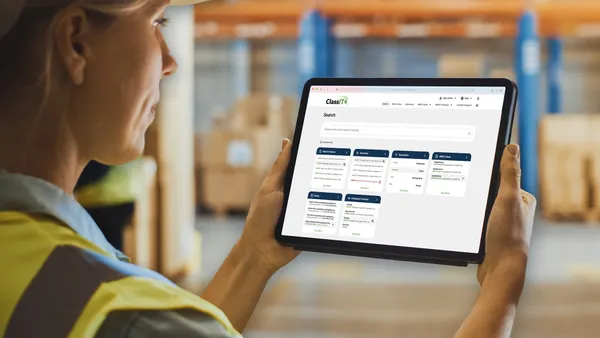Dive Brief:
- In a survey conducted by procurement consultancy Efficio and Cranfield University, 48% of procurement said fear of missing out or "FOMO," drives them to invest in new technology, the Chartered Institute of Procurement & Supply reported.
- Nearly three-quarters (72%) of survey respondents cited lack of personnel talent specialized in technology as a barrier to delivering value from tech investments.
- About two-thirds (66%) also cited poor support from their suppliers as a barrier to adopting emerging technology.
Dive Insight:
It would be nearly impossible to manage a complex web of global suppliers without some form of technology. On the other hand, machines cannot read the facial clues of the supplier about to offer a major concession in a tense negotiation — at least not yet.
Procurement leaders jumping into technology because of FOMO are not doing themselves, their companies or their suppliers any favors. Far too often, we look at technology as a solution in search of a problem.
Software and tools geared to the procurement profession are often not developed by those with experience of working directly with suppliers. Solving production problems in a Tier 3 supplier while negotiating price with a sole source located in another country is not easily reduced to bits and bytes. Procurement-related technologies can lack that real-world grittiness of our day to day workflow.
Consider the impact of technology on the supply chain. While sophisticated suppliers might do well to download prints and information from a supplier portal while updating their open order status, far too many downstream suppliers are running the equivalent of Windows 95. And finding new suppliers just might not be an option. Be careful of what technology will do to members of your supply chain.
While older generations are certainly not Luddites, millennials and those digital native Gen Z employees embrace technology, and their expectation may be to leverage it across the supply chain. Procurement as we know it today will certainly look different in the next couple of years. Five years from now, we may not recognize it at all.
Analytics and big data are here to stay. Companies cannot operate effectively without data driven decisions in areas such as sales and operations planning, supplier performance, cost analysis and in the construction of risk assessments and economic modeling. This is one area where FOMO certainly does matter.













